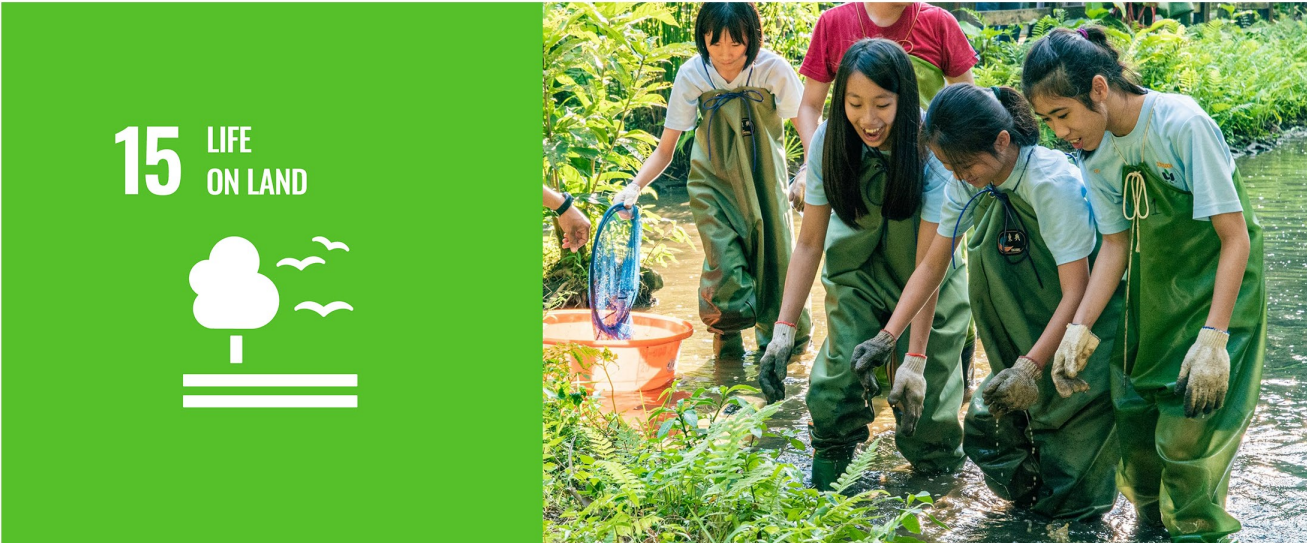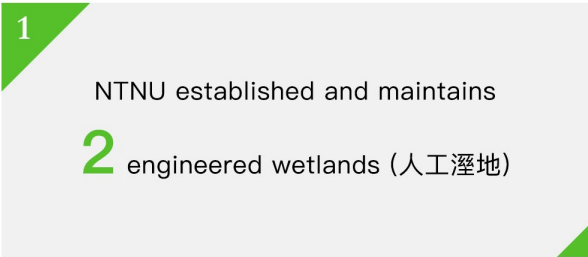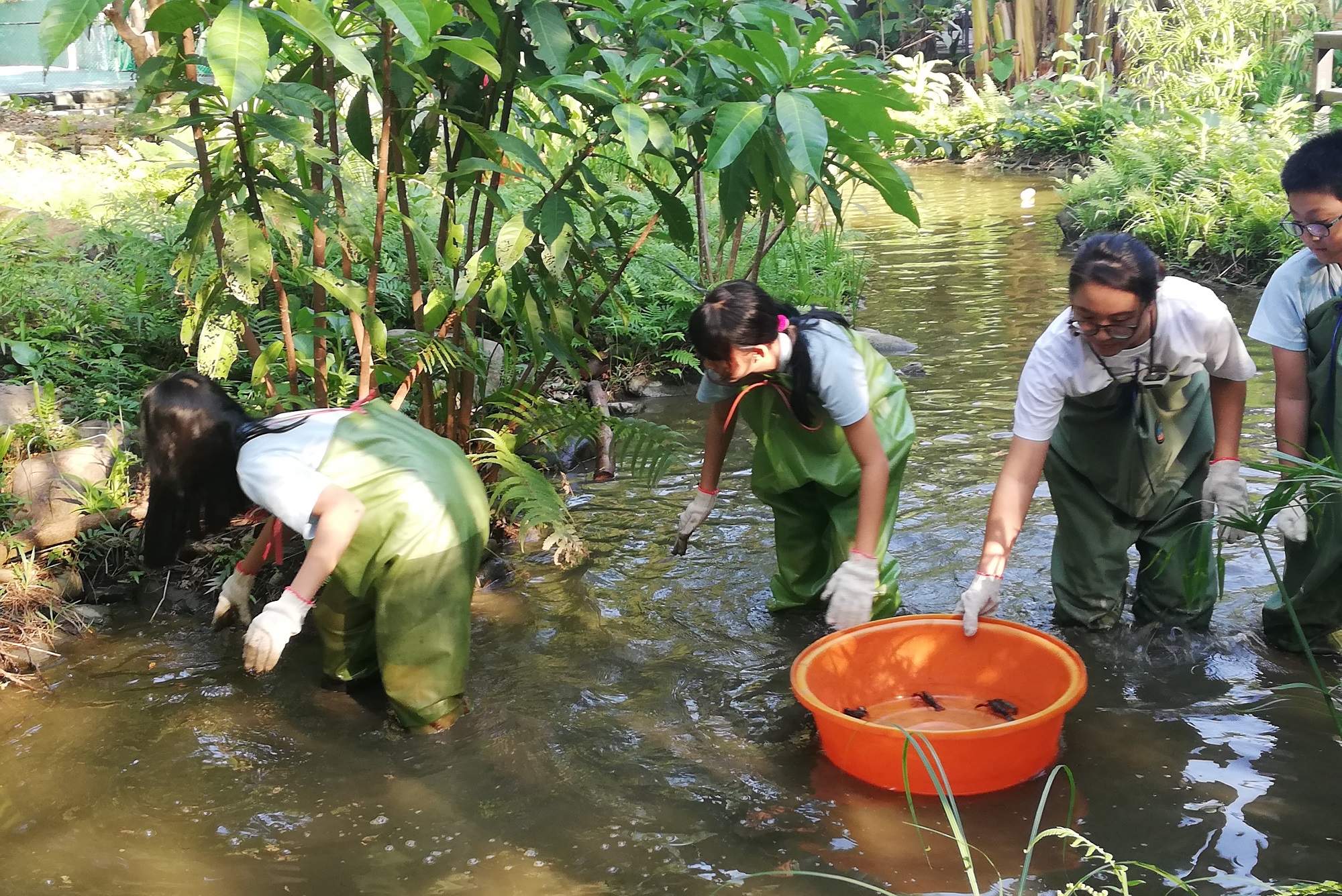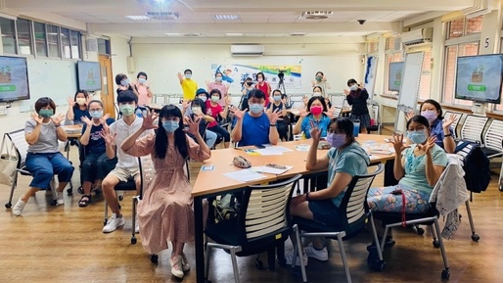


15.1 Spirit of the SDG and the University’s Philosophy
Given the concerns of the UN and the international community about the reduction of forest area, land desertification, and loss of biodiversity, and calls for land resources to be used in a fair manner, ensure food security, provide protection, increase productivity, and respond to climate change, THE World University Rankings now also consider the sustainable use of land, the provision of ecological education, the monitoring of biodiversity, and the proper management of wastewater and waste discharge, and examines the active strategies and actions taking by institutions involved in associated research, and related fields.
In terms of overall institutional governance, the University has long promoted the creation of campus habitats and the conservation of biodiversity, and it has achieved the efficient use of land resources through green procurement and plastic-reduction campaigns. At the community level, plastic-reduction campaigns connect nearby businesses, nongovernmental organizations (NGOs), and schools to support reductions in the use of disposable plastic products. At the country level, each NTNU department focuses on research and education majors, performing not only coastal-to-forest ecological monitoring, but also developing diverse curriculum materials, long-term guidance, and campaigns for first-line schools to practice campus sustainability, as well as supporting sustainable land use in a multifaceted manner. On the international front, long-term research and the publication of species and habitats in Taiwan will help to improve the understanding of the impact of global climate change, and the University works with the international academic community to develop sustainable land-use strategies.
15.2 Achievements
Promoting green consumption and habitat creation, and implementing sustainable use of land resources
The University’s development plan is aimed at establishing a green university. The sustainable land-use measures include the following:
- More than 90% of the purchases NTNU had made were green procurement, which prioritize the use of energy-saving, water-saving, and low-carbon-footprint products that are sustainable and beneficial to the environment.
- The outsourcing business contract for the student restaurants states that food supplies must be prioritized from the traceability system promoted by the central agricultural authority, such as the Taiwan organic agricultural product label (including the transition period), that the production and sales documentation includes the agricultural product label or Taiwan’s fine-agricultural-products labels, or are traceable agricultural products marked with a barcode for their traceability (livestock and aquatic products), and that the use of genetically modified fresh food materials and their primary processed products are prohibited, so that teachers and students can support sustainability in their campus diets and consumption.
3. Establishing a sustainable campus demonstration area on the Gongguan campus. In addition to planting a variety of aquatic plants, ecological ponds, and artificial wetlands, ecological trails and commentary signs are set up that provide educational commentary services. In addition, butterfly nectar plants are planted and plant explanation boards are installed. In addition to creating a diversity of campus butterflies and promoting ecological education, this approach has the function of restoring insect habitats. In addition to the construction of artificial wetlands at the Linkou campus, the planting of local native and suitable tree species also forms the basis for tree planting.
Starting from research and education majors, supporting ecological monitoring, ecological education, and ecological tourism in Taiwan
The life sciences, geography, and other departments at NTNU have a long history of not only cultivating domestic ecological research and teaching talent, but also laying the foundation for local ecological research. Investments in ecological monitoring research in recent years have included (1) research on genetic differences and environmental factors of Taiwan’s endemic plants in different habitats, and (2) research on environmental factors and threats required by insects in forest environments, so that species can be monitored under the impact of climate change and the changes in the ecosystem so as to raise warning signs. Research on the sustainable management of land resources includes (1) western coastal forests and habitat restoration for migratory species, (2) human–wild-animal interactions and conflict-resolution methods in the western shallow mountain areas, (3) water use by people in the western subsistence area, and (4) the history of water usage in the western area.
The University has long-term cooperation initiatives with the government, schools, and NGOs to develop courses for different education majors, and has made substantial contributions to ecological education in Taiwan. The sustainable development courses include (1) developing table games for protecting protospecies and preventing alien species, and guiding students to think about and discuss biodiversity issues; (2) investing in the production of popular-science films on biodiversity in Taiwan; and (3) assisting the Forestry Bureau of the Council of Agriculture of the Academy in assessing the feasibility and strategies of using forests as healing fields, and guiding private forests to integrate local natural and cultural characteristics towards the development of ecotourism.
Properly managing pollutants and promoting campus plastic-reduction campaigns to ensure a clean Earth
The University’s chancellor has signed the declaration of environmental safety and health policy, which aims to continuously improve environmental safety and health and disaster prevention, and implement pollution prevention and control. Specific actions include (1) establishing the Environmental Protection, Safety and Health Committee and the Campus Disaster Prevention Committee; (2) establishing the University’s standard operating procedures for toxic chemical substances, controlling different types of waste, and specifying the storage method of each waste type before it is delivered for final treatment and finally sent to a professional resource recovery plant for processing; and (3) the long-term implementation of education and training programs, including introducing hazardous chemicals, management regulations, and emergency response measures. Waste liquids generated in experiments performed in the Department of Chemistry are processed in accordance with the standard operating procedures for toxic chemical substances and the temporary storage of laboratory waste liquids, and the EPA’s waste disposal law, and are cleaned regularly. An automatic inspection plan involves relevant laboratories checking for organic solvents in order to prevent wastewater pollution.
NTNU established the National Taiwan Normal University Plastic Reduction Promotion Center in 2017, combining neighboring colleges, universities, high schools, NGOs, and private enterprises to promote plastic reduction. The achievements in recent years include (1) integrating plastic-reduction issues and establishing professional courses; (2) the correct removal of plastic waste; (3) establishing bespoke courses on plastic-free daily necessities; and (4) promoting plastic reduction through activities such as board games, gatherings, summer camps, lectures, fairs, visits, and creative competitions.
15.3 Featured Highlights
15.3.1 Creating biodiversity habitats
NTNU incorporated the establishment of a green university into its institution development plan in 2010. In terms of habitat creation, this initiative has created an artificial wetland with a variety of aquatic plants. Nectar plants have been planted and ecological trails and commentary boards have been set up at the Gongguan campus. The teachers and students of the Institute of Environmental Education have invested in educational commentaries and promotions, while local native and other suitable tree species have been planted at the Linkou campus. In recent years, more than 1,000 trees and shrubs have been planted.

15.3.2 Combining with the community to promote plastic reduction
In addition to ensuring that businesses do not sell disposable tableware, the University has also responded to the Ministry of Education’s promotion of the USR Practice Program by establishing a plastic-reduction promotion center at NTNU, combining neighboring colleges and universities, national high schools, NGOs, and private enterprises to work together to promote plastic reduction. Specific actions include (1) integrating plastic-reduction issues and establishing professional courses; (2) the correct removal of plastic waste; (3) establishing bespoke courses on plastic-free daily necessities; and (4) take promoting plastic reduction through activities such as board games, gathering spots, summer camps, lectures, fairs, visits, and creative competitions. These initiatives involved 19 stores and 80 participants, with 406 environmental protection actions being completed. There were 80 entries for the creative plastic-reduction product designs, 102 people participated in the courses teaching hand-made products, and 51 people participated in plastic-reduction travel-light event. In addition, the “National Taiwan Normal University Campus Plastic Reduction Protocol” was passed in June 2021 to decrease the use of bottled water and disposable plastic products, and encourage the use of reusable shopping bags, environmentally friendly tableware, and environmentally friendly labels.

15.3.3 Establish Taiwan Ecological Monitoring and Land Resource Utilization Think Tank
The life sciences department of our school has a long history of development. It not only cultivates domestic life science academic research and teaching talents, but also lays the foundation for local ecological research in professional research. Among them, the Department of Life Sciences has long invested in research on genetic differences and environmental factors of Taiwan’s endemic plants in different habitats, as well as research on environmental factors and threats required by insects in forest environments, so as to monitor changes in species and ecosystems under climate change. And Raise a warning.
In addition to supporting the sustainable use of land resources, the Department of Geography invests in research on the restoration of forests and migratory species habitats on the western coast, and the Department of Life Sciences invests in research on the interaction between humans and wild animals and conflict resolution methods in the western shallow mountain areas, Taiwan History Studies Invested in the research on the history and environmental changes of water resources used by the people in the western stratum subsidence area, and provide guidance for the sustainable management of land resources.

